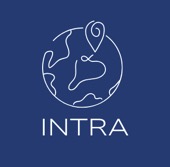Tax Reading Group (04/25)
| Date: | 17th April 2025 |
| Time: | 19:00-20:00 CET Time |
| Location: | Online |
| Participation link: |
Microsoft Teams Need help? Meeting ID: 355 055 788 455 9 Passcode: wX3hs23V
|
| Article: |
Karishma Banga, Alexander Beyleveld and Martin Luther Munu, Trading away tax sovereignty? How trade rules shape taxation of the digital economy in Africa |
|
Click to download the article: |
Article |
How to Prepare
1) Read the article in advance: “Trading away tax sovereignty? How trade rules shape taxation of the digital economy in Africa”
2) Think about one or two sentences in the article that intrigued you.
3) Reflect on these guiding questions:
- The article illustrates how trade rules—especially under WTO's GATS and digital trade protocols—can restrict a country’s ability to design and implement taxes like VAT, DSTs, or customs duties on electronic transmissions. While the issue is especially pressing for African countries, similar tensions exist globally. How can countries—both in the Global South and North—balance the preservation of tax sovereignty with their commitments under international trade agreements? Should there be clearer safeguards or carve-outs for taxation measures in trade negotiations, or does this risk fragmenting global trade norms and digital markets?
- Given the potential for DSTs to disproportionately affect foreign (often U.S.-based) tech companies, there’s a risk of violating non-discrimination principles under GATS. Should countries rethink the structure of DSTs to avoid trade disputes, or should they push for clearer exceptions in trade agreements to protect digital tax measures?
- As highlighted in the article, Kenya and South Africa’s shift towards the OECD’s Pillar framework may help align digital taxation with international norms—but possibly at the cost of local fiscal autonomy. Do global solutions like Pillar One and Two truly offer a fair alternative to unilateral measures like DSTs for African economies, or do they risk further entrenching inequalities in taxing rights?
Meeting Format
1) Welcome & Introduction (15 mins.)
· A brief welcome and overview of the session
· A concise summary of the article’s key points and arguments
· Sharing the sentences in the article that intrigued you
2) Guided Discussion (30 mins.)
· Discussions around the guiding questions provided pre-meeting
3) Wrap-up & Closing (15 mins.)
· Summarize key takeaways
· Final thoughts
· Next steps
If you have any questions, please don’t hesitate to contact us at
Looking forward to an engaging and insightful discussion with you!
Best regards,
Ezgi
INTRA Tax Reading Group

